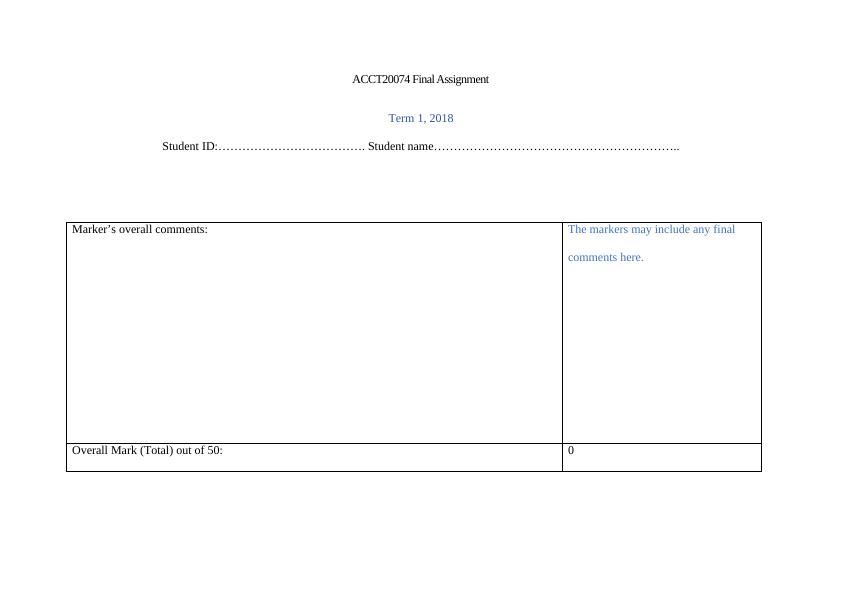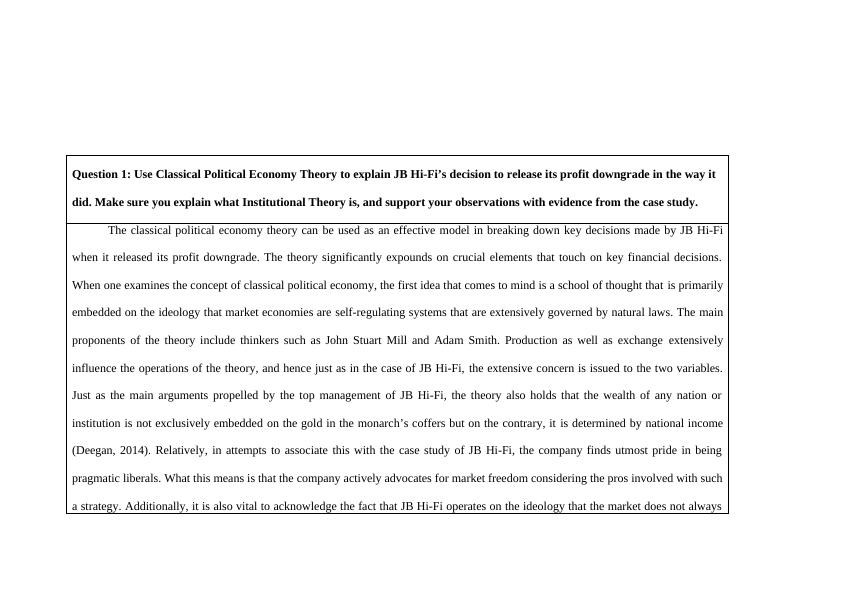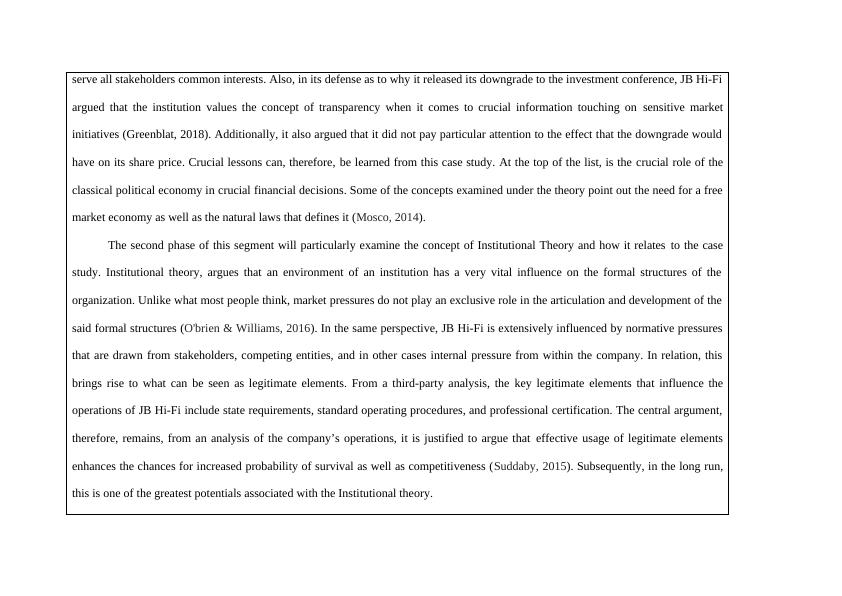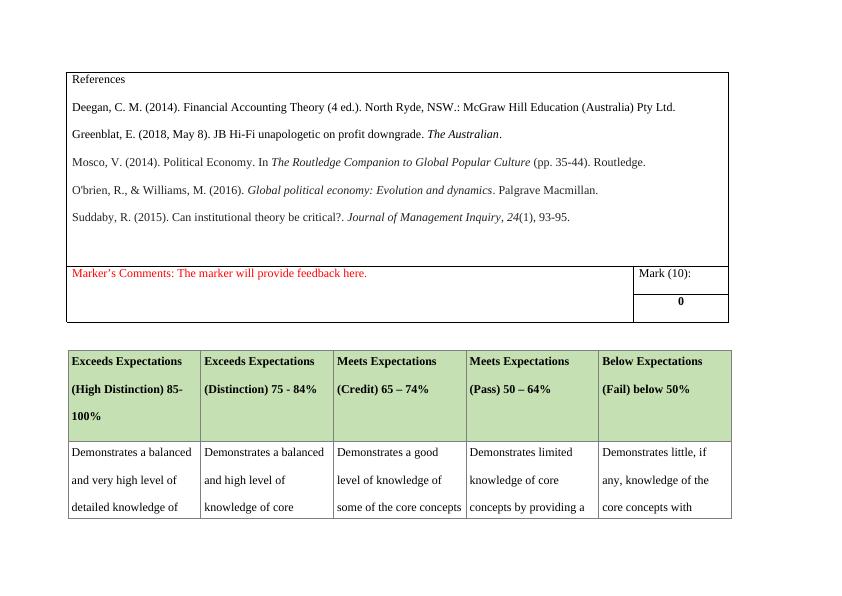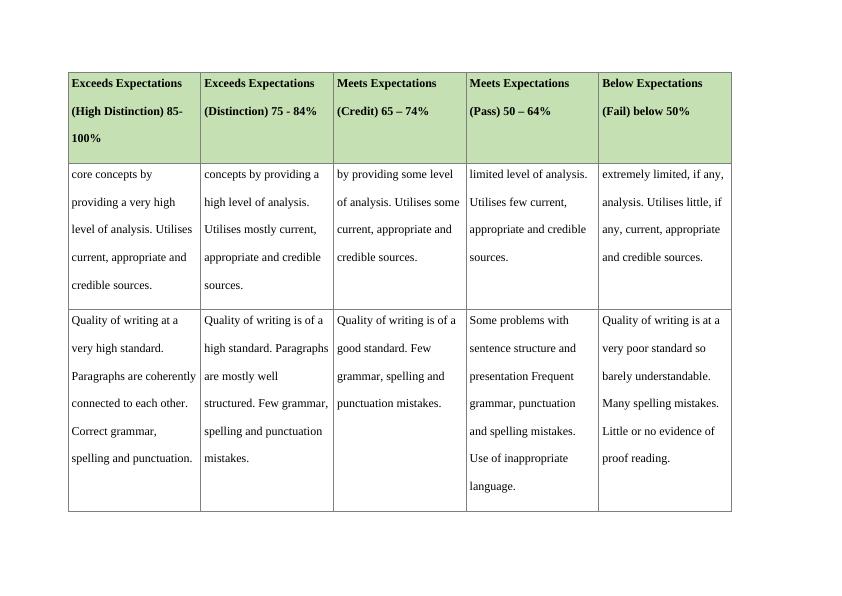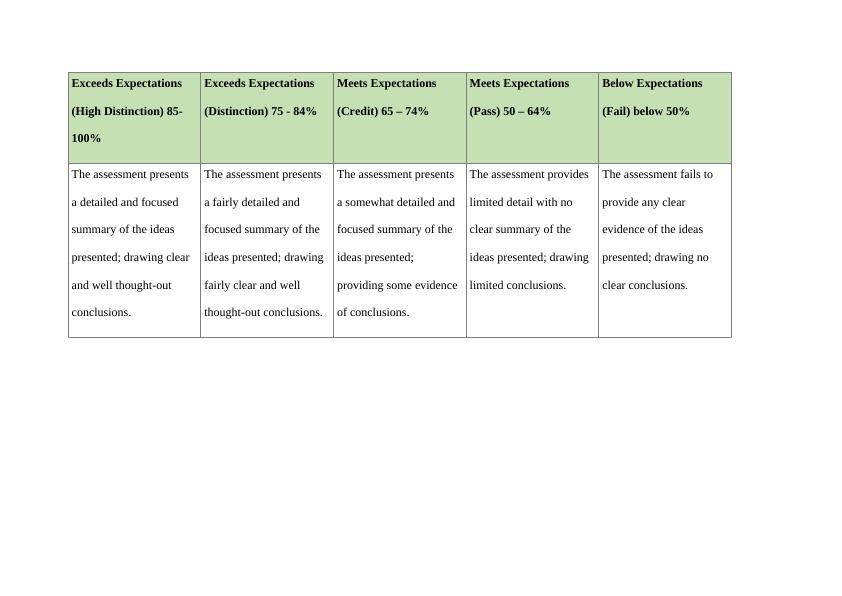Using Classical Political Economy and Managerial Stakeholder Theory to Analyze JB Hi-Fi's Reporting Decisions
This case study discusses JB Hi-Fi's decision to release a profit downgrade within a presentation to analysts instead of making a stand-alone statement to the stock exchange, leading to a significant drop in its shares.
26 Pages6421 Words73 Views
Added on 2023-06-11
About This Document
This article analyzes JB Hi-Fi's reporting decisions using Classical Political Economy and Managerial Stakeholder Theory. It explains the key concepts of these theories and provides evidence from the case study to support the observations. The article highlights the importance of managing relationships with stakeholders and the role of power in influencing management decisions. It also discusses the ethical branch of stakeholder theory and its implications for corporate social responsibility.
Using Classical Political Economy and Managerial Stakeholder Theory to Analyze JB Hi-Fi's Reporting Decisions
This case study discusses JB Hi-Fi's decision to release a profit downgrade within a presentation to analysts instead of making a stand-alone statement to the stock exchange, leading to a significant drop in its shares.
Added on 2023-06-11
ShareRelated Documents
End of preview
Want to access all the pages? Upload your documents or become a member.
Why JB Hi-Fi?
|19
|4406
|490
Using Classical Political Economy Theory and Managerial Branch of Stakeholder Theory to Explain JB Hi-Fi's Decisions
|17
|6001
|109
Using Classical Political Economy Theory and Managerial Branch of Stakeholder Theory to Analyze JB Hi-Fi's Reporting Decisions
|16
|5660
|364
Using Political Economy and Managerial Stakeholder Theories to Analyze JB Hi-Fi's Reporting Decisions
|11
|3761
|213
Explaining JB Hi-Fi's Reporting and Profit Downgrade Decisions using Classical Political Economy and Managerial Stakeholder Theories
|19
|6444
|224
Using Classical Political Economy Theory and Managerial Branch of Stakeholder Theory to Explain JB Hi-Fi's Reporting Decisions
|16
|6087
|63

